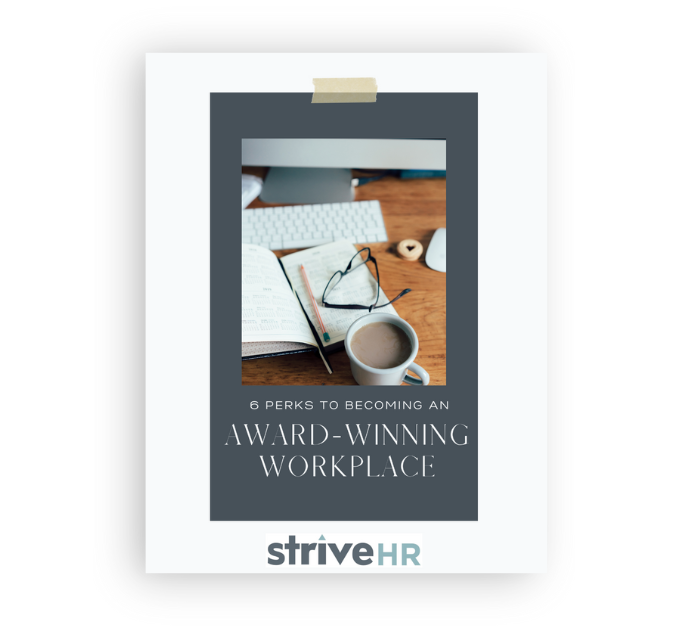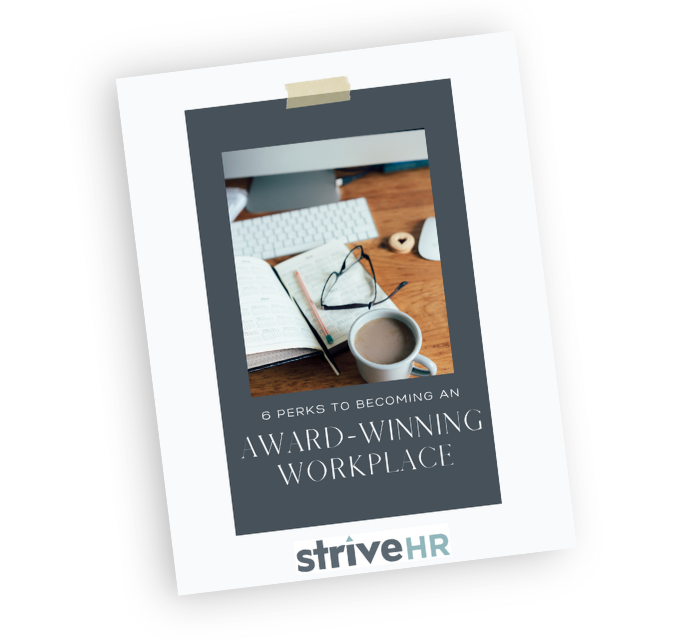Earning recognition as an award-winning workplace certainly has its perks. These awards not only validate an organization’s efforts to create great workplace cultures, but also serve as a magnet to attract top talent, strengthen employee retention and enhance your organization’s brand reputation.
Despite these benefits, some organizations encounter challenges when applying for awards. In this blog, we will explore five common obstacles, and provide actionable strategies to overcome these roadblocks to recognition and face these barriers head on.
OBSTACLE #1: Time Constraints
You likely have more items on your to-do list than you do time to get those items completed. No doubt, you are busy! Time is a valuable resource for you and for your organization. Filling out award-applications and managing the entire process can be time-consuming, and you may fear that dedicating your resources to this process will hinder the other responsibilities you have. This concern has led to some to hesitate or even avoiding participating in award programs altogether.
What to Do: Prioritize and Delegate
To effectively overcome this obstacle, here are a few strategies:
- Prioritize this initiative as a strategic goal with your organization. As leaders within your organization collectively agree this is a priority, alignment with the initiative to priorities the company already has in place, along with the support to allocate time and resources, will go hand in hand.
- Delegate responsibilities to a dedicated team or individual to ensure that the application is given the necessary attention and doesn’t negatively impact or disrupt daily operations. You can lean on others within your organization to provide you with information required to submit your application, thus saving you time and empowering others to be involved in the application process.
- Streamline the process by creating a template for commonly requested information. This will save you valuable time in the long run as you may be applying for other awards or the same award in following years and ensures you won’t need to start from scratch with each award opportunity.
OBSTACLE #2: Cost Concerns
Some organizations are concerned about the financial implications of applying for awards, such as application fees, marketing expenses to promote nominations and resource allocation. To combat this obstacle, assess your return on investment (ROI) of winning an award. Winning an award can lead to improved employee attention and decreased recruiting expenses, which often outweighs the initial costs.
What to Do: Assess ROI and Budget
To tackle these financial worries, consider these ideas:
- Assess your return on investment (ROI) by calculating the potential ROI of earning an award. If you were to increase your applicant traffic by even 10%, think of the impact that would have on your recruiting expenses.
- Allocate a portion of your annual budget dollars to cover award-related expenses. By planning ahead and including these costs in your financial planning, you can minimize the financial burden when award application opportunities arise.
OBSTACLE #3: Kickoff Dilemma
One of the most challenging parts of beginning any initiative is knowing where to start. Applying for a workplace award can seem overwhelming, and without a clear starting point and what steps to take, you may feel compelled to hesitate to even take the first step. The fear of the unknown can take over without a clear direction or guide.
What to Do: Seek Training and External Support
To draw inspiration from others, take these actions:
- Collaborate with others within your network who have facilitated their organization’s award application. They can share their experiences so that you can learn from their processes and outcomes.
- Seek expert guidance by reaching out to experts that have successfully applied for workplace awards in the past, such as striveHR. You can receive valuable guidance on how to navigate the application process, understand how to utilize resources and learn what to expect during the award journey.
This topic is addressed in more detail in my book CULTURE IMPACT, where an entire chapter has been dedicated to help organizations who are looking to get started with applying to become an award-winning workplace.
OBSTACLE #4: Survey Fatigue
Employers that have previously requested their employees participate in an engagement survey may sense that their employees are reluctant to provide feedback again. This tends to be because the employees feel as though they have been asked for feedback and do not see meaningful action taken in response. It’s not that the employees do not want to share their feedback, but rather they are concerned their feedback and opinions are disregarded. Sure, they are busy just like you, so make sure their time is respected and valued by providing them with reports back on the engagement data.
What to Do: Bridge the Feedback Gap and Foster Engagement
To address this concern, consider implementing the following approaches:
- Bridge the feedback gap by recognizing that employees who perceive their feedback is not acted upon is not valued, and they will become hesitant to provide input in the future. When employees feel heard and trust that their input is taken into consideration, demonstrates a commitment from the organization to listen and learn from the valuable insights.
- Foster engagement with your employees by not only sharing the results of engagement surveys, but also by including the employees on initiatives based on the data from the survey. This can be done through focus groups or empowering teams to take on action items and ideas.
OBSTACLE #5: Fear of Not Winning
You may have heard the phrase, ‘You miss 100% of the shots you don’t take.’ This is no different, as some organizations do not apply to be named as a best workplace simply because they are afraid they will not make the list. Others have not yet experienced the benefits previously discussed in this blog, therefore they do not see it as a valuable way to spend their time and resources. That’s what they are missing out on, and here’s why.
What to Do: Focus on the Journey, Not Just the Outcome
To overcome this fear, implement these methods:
- To focus on the journey means you are in it for the commitment to the process. And, early in the process of applying to be an award-winning workplace, it is critical for decision makers to determine their WHY – their reason for applying to earn the distinction. Maybe it’s to improve their talent pipeline. Maybe it’s to have a stronger understanding of the engagement of their staff. This will keep you on track towards the goals you want to achieve.
- Looking past the outcome means you are learning so much more about your employees which makes the reward of this journey even greater than getting your organizations’ name on the ‘the list’. Here you shift your focus from just winning to the process of improvement. Even if you don’t win, the process of applying will help you identify areas of growth and opportunities for improvement. It’s why this journey brings you more than a trophy.
CONCLUSION
Applying for workplace awards can be a daunting task, the rewards and benefits far outweigh the obstacles. By addressing time constraints, cost concerns and the learning curve of the process, organizations can position themselves for success.
Will you deal with challenges such as survey fatigue and the concern of not winning? These are very real and should not be shoved aside without giving them strong consideration and addressing these head on. The last impact of improvement will bring growth to your organization. You can expect to see your employees more engaged simply because you asked for their ideas, feedback and opinions.
Don’t let the obstacles hold you back. Embrace the opportunities to shine and enjoy the rewards of recognition.
If your organization is looking for an advisor to help with your employee engagement and workplace culture, striving to become an award-winning workplace, or in need of a business coach for HR, let’s talk about how I can help you. Schedule a time to chat HERE.
To explore more ideas and strategies for supporting a corporate culture that leads to becoming and maintaining an award-winning workplace, check my book, CULTURE IMPACT.




